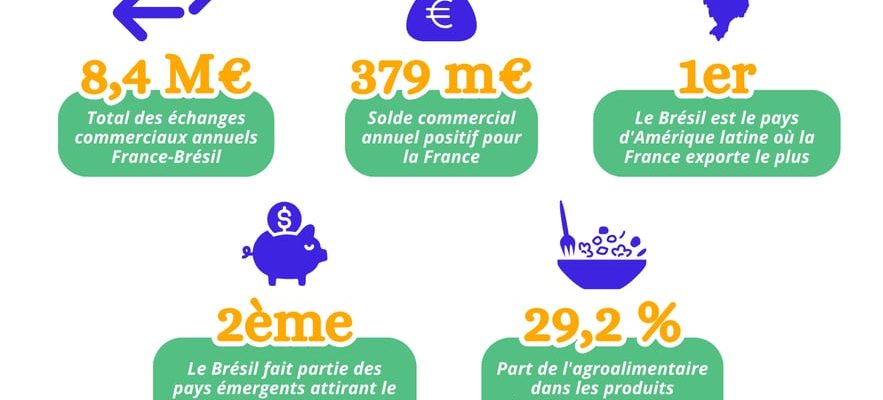After the lush decor of the forest, the Legion of Honor for the cacique Raoni and the announcement of a program aimed at raising “a billion euros of green investments” for the Brazilian and French Amazon, place today today to the economy and the submarine industry… French President Emmanuel Macron continues, Wednesday March 27, his state visit to Brazil, dedicated to marking rapprochement with the Latin American giant, a driving force among emerging countries . Wednesday morning, the two presidents meet near Rio de Janeiro, at the Itaguaí shipyard, for the launching of the third in a series of four French-designed submarines with conventional propulsion.
The delivery to the Brazilian Navy of the Tonelero, a French-designed “Scorpène” submarine, is part of an unprecedented strategic partnership between Paris and Brasília, which should lead to the construction by Brazil of its first propulsion submarine. nuclear. The ceremony refers to December 2008 and the signing by the then French president, Nicolas Sarkozy, and already Luiz Inacio Lula da Silva, of a vast strategic agreement also covering the sale of 50 helicopters and a contract for 6, 7 billion euros to develop Brazil’s submarine capabilities and its industry.
Defend the “blue Amazon”
With its 8,500 kilometers of coastline, Brazil intends to ensure the security of what it calls the “blue Amazon”, its immense exclusive economic zone through which more than 95% of its foreign trade passes and from where About 95% of its oil is extracted. A first part provides for the construction in Brazil by ICN, a joint venture between Novonor (formerly Odebrecht, Brazilian construction giant) and Naval Group, of four Scorpène submarines with diesel-electric propulsion, a model that Naval Group has already sold to Chile , India and Malaysia.
Brazilian engineers and technicians were trained in Cherbourg, while Naval Group provides the plans, certain equipment and technical assistance. This program, called “Prosub”, is presented by the French naval defense industrialist Naval Group, responsible for the construction of submarines, as “the most comprehensive technology transfer program ever carried out”. The second part of the partnership aimed to build a new naval base and a submarine construction yard in Itaguaí. This was inaugurated in 2018.
The Tonelero, launched on Wednesday, is the third of four conventionally powered Scorpènes built under this partnership after the Humaita, launched in January and the Riachuelo, in service since September 2022. The last, the Angostura, is due to be launched in 2025. These vessels, weighing 1,870 tonnes and 71 meters long, can fire heavy F21 torpedoes or Exocet anti-ship missiles, also acquired from the French defense industry.
Nuclear propulsion
Brasília could also call on Paris to help it develop nuclear propulsion on a fifth submarine, the Álvaro Alberto. Which would make Brazil the first country to have this technology, after the five permanent members of the UN Security Council. France has until now remained very reluctant to any technology transfer in this area, due to the challenges of nuclear proliferation.
Naval Group provides technical assistance for the design of the building, except for its nuclear part, the nuclear boiler room being designed by the Brazilians. The project is accumulating delays, in particular due to budgetary difficulties, and the submarine is now planned for 2036-2037, according to the Brazilian Navy. Brasília is seeking to convince Paris to increase its technology transfers to help it integrate the reactor into the submarine and to sell it equipment linked to nuclear propulsion (turbine, generator).
On the occasion of Emmanuel Macron’s state visit to Brazil, the French and Brazilian presidencies announce a return to grace of their diplomatic relations, after the dark years of the presidency of Jair Bolsonaro.
© / L’Express / French customs, Banque de France
Non-proliferation obligations
“There are discussions on the possibility of France cooperating with us, including on nuclear energy, nuclear fuel,” according to the European head of Brazilian diplomacy, Maria Luisa Escorel de Moraes, who recognizes that it is This is a “strategic, sensitive, delicate matter”. In a report in July, French senators highlighted “issues” linked to non-proliferation obligations in the event of further cooperation with Brazil; However, they called for “studying all possibilities, while the Aukus agreement should give rise to the delivery of nuclear-powered submarines to Australia by the United States.”
After this visit, the French president will then return to the economic capital, Sao Paulo, to praise the merits of French companies in Brazil and promote France to Brazilian investors.
Paris is the fourth largest investor in Brazil, with more than 40 billion in direct investment stocks in the country. Emmanuel Macron will then go, Thursday March 28, to the capital Brasília for an exchange with Lula at the presidential palace of Planalto, dominated by major international issues.
